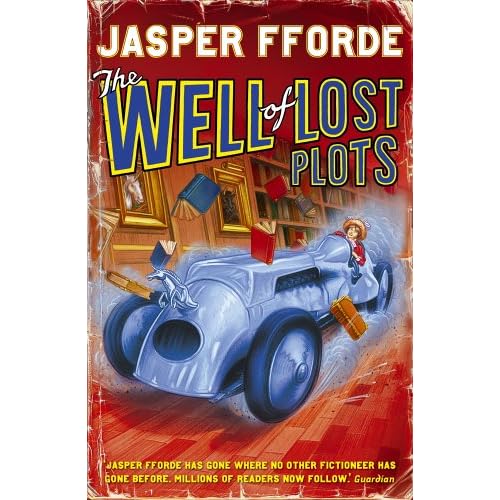
Keep it simple, keep it fast and keep it jokey: Perfect entertainment for the mid-teens (and older).
I’ve enjoyed all the Artimis Fowl novels to date – and this latest, Artimis Fowl and the Lost Colony, is no exception.
For those not in the know, Artemis is a teenage genius with a penchant for crime, and a big – very BIG – minder called
In this episode Artemis starts off demon hunting in
For starters there is an initially slightly younger female genius just as arrogant, just as rich and just as infuriating as he is himself: And with the surging of adolescent juices, Artemis is getting a little emotional: Not his sort of thing at all – he even has to ask Butler for advice! She’s too busy working on a paper for her first Nobel prize to take much notice.
Then there are the demons – whose own adolescent juices make the trials of the average human no more taxing than squeezing the odd blackhead. One of the demons seems to have a problem of delayed adolescence – but that turns out to be a good thing for all demon kind, although somewhat embarrassing for the poor individual concerned.
The final element is a suitably manic maniac, Kong – the human equivalent of a Polar bear amongst the seals. He had the misfortunes to have had a creative older brother whose embroidered ‘boggy-man’ stories result in a series of very unfortunate events at the top of a very high skyscraper and an exhibition of very accurately detailed stone carving from the Celtic fringes.
Nothing to worry about though – even though Artemis lets Holly die and fails totally at one point, trapping himself forever on the other side – all ends happy ‘til the next episode, in the end.
Great read (parents - steal it off the kids and sneak it under the bedcovers).
 To loose the plot of something is to go a little crazy to be totally out of touch – I’m not suggesting Mr. Fforde has gone that far, but the plotting of the story does suggest a little desperation and there are a couple of details that add to an inconsistency that is not comfortable for the reader.
To loose the plot of something is to go a little crazy to be totally out of touch – I’m not suggesting Mr. Fforde has gone that far, but the plotting of the story does suggest a little desperation and there are a couple of details that add to an inconsistency that is not comfortable for the reader.

